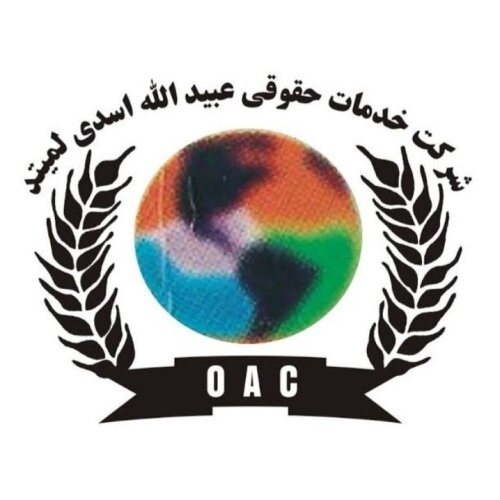Best Corporate Governance Lawyers in Kabul
Share your needs with us, get contacted by law firms.
Free. Takes 2 min.
List of the best lawyers in Kabul, Afghanistan
About Corporate Governance Law in Kabul, Afghanistan
Corporate governance refers to the system of rules, practices, and processes by which companies are directed and controlled. In Kabul, Afghanistan, corporate governance plays a critical role in shaping the business environment and ensuring transparency, accountability, and ethical conduct among corporations. Afghan corporate governance structures are influenced by local laws, Sharia principles, and international best practices, aiming to protect the interests of shareholders, employees, and the wider community.
Why You May Need a Lawyer
Seeking legal assistance in corporate governance is essential for individuals and companies facing various challenges or pursuing opportunities in Kabul. Here are some common situations where a lawyer’s expertise is necessary:
- Establishing a new business entity and understanding board responsibilities
- Structuring ownership and defining shareholder rights
- Drafting and reviewing company bylaws, articles of association, and internal policies
- Handling disputes among shareholders or between management and staff
- Navigating regulatory compliance and reporting obligations
- Addressing allegations of conflict of interest or breaches of fiduciary duty
- Advising on mergers, acquisitions, and other structural changes within a company
- Managing liability, corruption, or fraud concerns
Given the complexities of Afghan law and potential language or cultural barriers, professional legal guidance helps ensure all actions align with local legal frameworks and avoid costly mistakes.
Local Laws Overview
Corporate governance in Kabul is primarily regulated by the Company Law of Afghanistan, which outlines the formation, operation, and dissolution of various business entities. In addition to national laws, several decrees and regulations issued by ministries such as the Ministry of Industry and Commerce and the Ministry of Finance impact governance structures.
Key aspects include:
- Types of Companies: Limited liability companies, joint stock companies, and other business forms are recognized, each with specific governance requirements.
- Company Registration: All companies must register with the Afghanistan Central Business Registry and obtain relevant licenses.
- Board of Directors: Afghan law sets clear rules regarding board composition, responsibilities, and decision-making procedures.
- Shareholder Rights: Shareholders have defined rights regarding meetings, voting, and access to information.
- Transparency and Reporting: Companies must maintain accurate records, submit financial statements, and comply with audit requirements.
- Anti-Corruption Measures: Laws target bribery, corruption, and money laundering, with strict penalties for non-compliance.
- Dispute Resolution: The legal framework supports arbitration and judicial resolution of internal and external disputes.
Understanding and complying with these local laws is crucial for successful and sustainable corporate operations in Kabul.
Frequently Asked Questions
What is corporate governance and why is it important in Afghanistan?
Corporate governance describes how a company is controlled and managed. It is important in Afghanistan for ensuring ethical business conduct, improving investor confidence, and fostering economic growth.
What types of companies exist under Afghan law?
Afghan law recognizes several types of business entities including limited liability companies, joint stock companies, partnerships, and sole proprietorships. Each structure has different governance requirements.
What are the basic legal requirements for company registration in Kabul?
Companies must register with the Afghanistan Central Business Registry, submit founding documents, obtain relevant licenses, and provide proof of address and capital.
Are there specific rules for corporate boards in Afghanistan?
Yes, the Company Law outlines rules for the composition, powers, responsibilities, and meetings of boards of directors, including minimum membership requirements and conflict of interest provisions.
How often must companies hold shareholder meetings?
The law requires annual general meetings for shareholders, where key decisions such as approval of financial statements and board elections are made.
What are the main reporting and compliance obligations?
Companies must maintain financial records, issue annual reports, have accounts audited (if required), and submit certain reports to the Ministry of Finance or other relevant authorities.
How are shareholder disputes resolved?
Shareholder disputes may be resolved internally, through mediation or arbitration, or by seeking resolution in civil courts, depending on the company's governing documents and the nature of the dispute.
Does Afghan law address anti-corruption within companies?
Yes, Afghan law includes anti-corruption provisions, requiring companies to implement ethical practices, avoid bribery, and cooperate with investigations by governmental authorities.
Can foreigners serve on corporate boards in Kabul?
Foreigners can, in many cases, be appointed to serve on corporate boards, but must comply with Afghan visa, residency, and other regulatory requirements.
How can I find a qualified corporate governance lawyer in Kabul?
It is advisable to contact licensed law firms or legal professionals with expertise in corporate law. Local bar associations and business chambers may also provide referrals or recommendations.
Additional Resources
Navigating corporate governance standards in Kabul can be made easier by consulting the following resources and organizations:
- Ministry of Industry and Commerce - for company registration and regulations
- Afghanistan Central Business Registry - for legal and licensing requirements
- Ministry of Finance - for compliance, taxation, and reporting guidelines
- Afghanistan Chamber of Commerce and Investment - for business advice and networking
- Afghan Independent Bar Association - for legal professional listings
- International organizations such as the World Bank and UNDP - for reports and guides on corporate governance in Afghanistan
Next Steps
If you need legal assistance in corporate governance, consider the following steps:
- Clearly identify your legal needs and gather all relevant documents
- Contact a qualified corporate lawyer or law firm in Kabul for a consultation
- Discuss your business structure, challenges, and objectives with your lawyer
- Review your company’s current governance documents for compliance with Afghan law
- Implement or update internal policies in line with legal advice
- Stay informed about regulatory changes and ongoing compliance requirements
Investing in legal advice at the early stages can help avoid complications, protect your business interests, and ensure that your company remains in good standing under Afghan law. Do not hesitate to seek professional guidance whenever legal questions arise in the context of corporate governance.
Lawzana helps you find the best lawyers and law firms in Kabul through a curated and pre-screened list of qualified legal professionals. Our platform offers rankings and detailed profiles of attorneys and law firms, allowing you to compare based on practice areas, including Corporate Governance, experience, and client feedback.
Each profile includes a description of the firm's areas of practice, client reviews, team members and partners, year of establishment, spoken languages, office locations, contact information, social media presence, and any published articles or resources. Most firms on our platform speak English and are experienced in both local and international legal matters.
Get a quote from top-rated law firms in Kabul, Afghanistan — quickly, securely, and without unnecessary hassle.
Disclaimer:
The information provided on this page is for general informational purposes only and does not constitute legal advice. While we strive to ensure the accuracy and relevance of the content, legal information may change over time, and interpretations of the law can vary. You should always consult with a qualified legal professional for advice specific to your situation.
We disclaim all liability for actions taken or not taken based on the content of this page. If you believe any information is incorrect or outdated, please contact us, and we will review and update it where appropriate.













